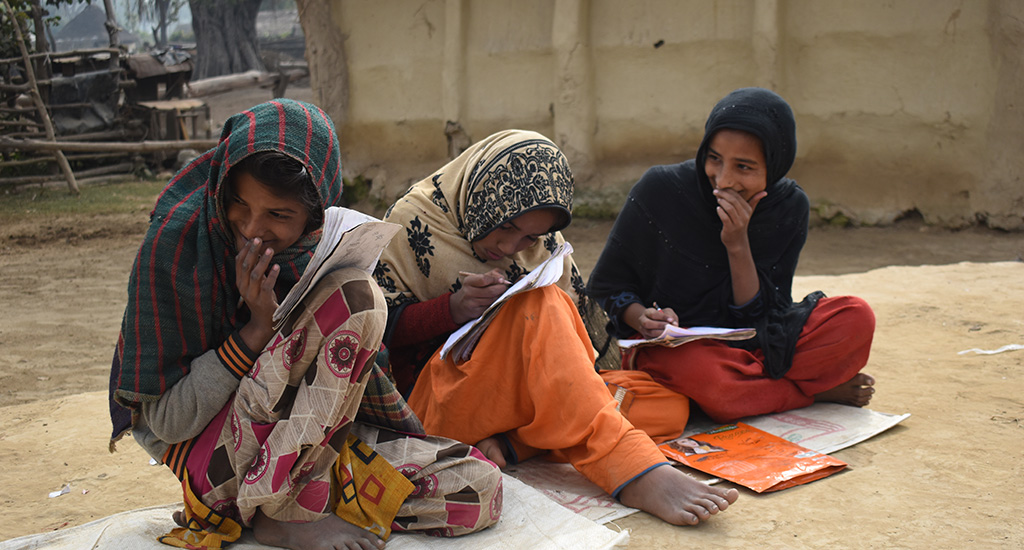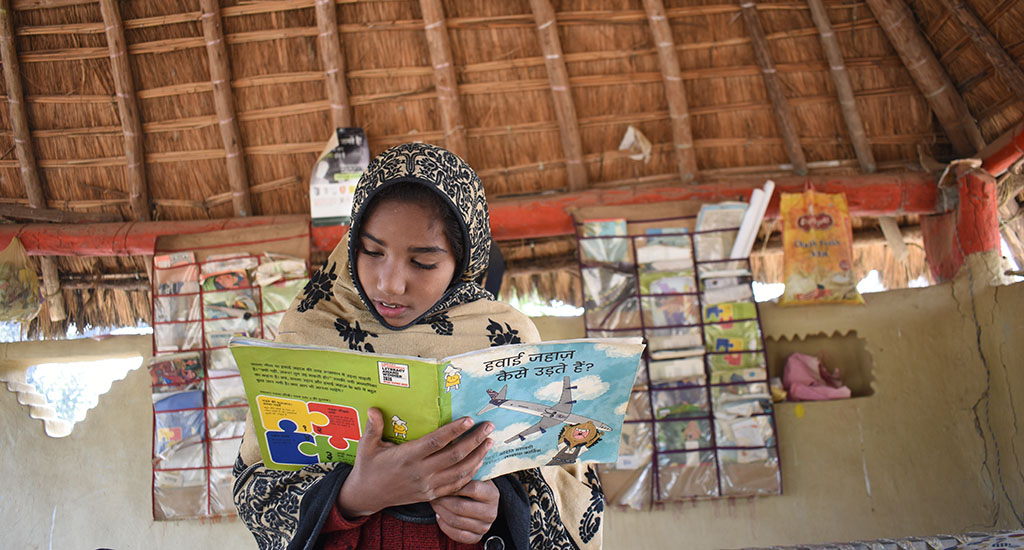
Community classrooms sow hope among Van Gujjar children
Thanks to an enterprising initiative, centres of learning called Maee are encouraging children to script better future for themselves across Uttarakhand settlements.

Thanks to an enterprising initiative, centres of learning called Maee are encouraging children to script better future for themselves across Uttarakhand settlements.
“I had never seen a classroom in my entire life until last year,” Imran said with a gleam in his eyes. “Just four years ago, had anybody asked me to write my name, I would not have been able to. But now I teach the children of my community,” he joyfully added.
Imran’s tryst with studies is no accident. Rather, it is the result of the strenuous efforts of Taukeer Alam – an enlightened member of the Van Gujjar community – to educate the young.
The Van Gujjars – where the prefix Van literally means forest in Hindi – is a pastoral community, residing in the Himalayan regions of Jammu and Kashmir, Himachal Pradesh, Uttar Pradesh and Uttarakhand.

The community’s migratory lifestyle and dependence on buffalo-rearing, to eke out a living, have been over a thousand years old. But so, has been their marginalisation – rooted in the denial of land rights and tribal status.
“Despite our tribal inheritance being officially recorded and documented, we are listed as Other Backward Class (OBC) and not Scheduled Tribe (ST) in Uttarakhand,” 27-year-old Alam said.
Alam and his family along with some thousand more families was forced to shift to government allocated land in Gaindi Khata village of Uttarakhand’s Haridwar district after the demarcation of Rajaji National park. However, many Van Gujjar families were made to stay back in the reserved forest and continue to do so.
“Our community has not only been separated but also refused access to education and employment, especially in public sectors.”
And so, the quiet and shy Alam, who himself had dropped out of school in the 9th grade, took upon himself to initiate ways to create the learning process among the community, both in reserved and rehabilitated settlements.
Also Read | Community school shines beacon of hope in Surguja hills
Alam and his friends conducted a survey and realised that there were around 3000-3200 children in Gaindi Khata, out of which only about 600 were enrolled in different schools. However, what astonished Alam was that only 150-200 children were going to the school.
“It was really a worrisome situation because a huge number of kids were cut off from the schools. What else bothered me was that in the reserved forest areas, there was literally no form or medium of education available.” Alam said.

In 2018, Alam along with his friends visited various Gujjar settlements and asked the community members if they even wanted to educate their children and if so, how could they contribute?
Most were enthusiastic in their responses, prompting Alam and his team to set-up the first learning centre in Laldhang – a mud house with thatched roof donated by the locals.
With the simple aim of providing basic formal education and academically preparing the children, the team named the centre as Maee, which in Gujjari means a person who takes care of the buffaloes.
Also Read | Residential school empowers tribal children through education
In January 2019, Alam also constructed a makeshift library in his own house to cater to the children living in rehabilitated areas since he felt that the Van Gujjar children were often overlooked by the teachers in school. The children, unable to keep pace with the rest of the class and sometimes taunted by their classmates, usually stopped going to the school.

Creating change
Identifying these obstacles, Alam and his team posited their teaching model on local or rather Gujjari examples. “We do not carry sticks in the classroom, nor do we make students sit in the back.
Teachers and students sit in a circle so that no student feels excluded,” Saddam Lodha, who teaches the children, said.
“We just don’t want our children to be literate. We want them educated as well,” Lodha emphasised. “We focus on their holistic growth and so our syllabus includes everything from gender to environment and incorporates examples from forests, animals, birds, or even rivers to help children easily connect with the subject matter.”
Imran was one of the first students to join the Maee centre in Chidiyapur forest range. Initially, his father was reluctant to let him travel 6 km to reach the centre, but then Alam made him change his mind.
“Earlier when I used to ask my father to send me to the school, he would say there is no point. But now he agrees that there is nothing I can achieve in life without education,” Imran said.
In the last 4 years, the team has managed to touch the lives of over a
hundred children. From getting enrolled in schools to completing their bachelor degrees, the team and the children have come a long way. Some youth are even preparing for the Civil Service examinations.
Particularly encouraging for Alam is that many Van Gujjar families have started sending their girls to join the centre, and in some cases, later to schools.

“Out of 5 kids who were enrolled in school in July 2022, 2 were girls,” Alam gleefully added.
However, the journey has been full of challenges. Besides entirely depending on crowd-funding for every expenditure, the library and centres have not been able to recover from the Covid-19 induced pandemic and the consequent financial crunch.
“We began with four centres in four different forest areas but now we are only left with two. I have also not been able to pay Saddam for the past 3 months,” Alam said.
Also Read | Nutrition gardens help students learn better and eat better
Undoubtedly, this has had a direct impact on the number of kids the library and centre can accommodate now. The number of children has come down to 100 from over 250. Moreover, Alam’s dream, since the beginning of the project, to hire a female teacher in order to connect better with young girls seems as distant as always.
But what gives Alam hope is Imran’s enthusiasm to teach the children and expand the centres as he grows up. “I will at least open one library and one centre, if not two, in the forest just like Taukeer Bhai,” Imran said.
A spark being lit, Maee centres are set to light up Van Gujjar lives.
The lead image shows Van Gujjar girls studying in the Maee centre (Photo by Jyoti Thakur)
Jyoti Thakur is an independent journalist based out of Delhi. She covers gender, environment and social justice. She is a Rural Media Fellow 2022 at Youth Hub, Village Square.